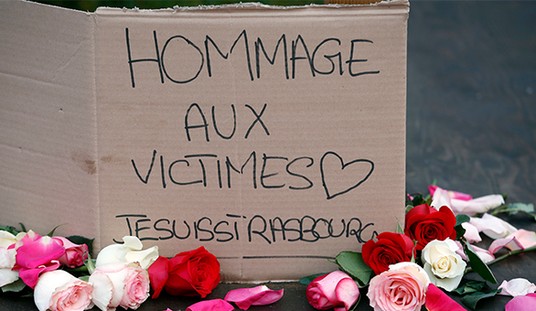After much delay and debate, the EU has finally decided to ask the IMF to partner on a bailout for Greece. The bankruptcy of the government in Athens threatened to destabilize the economies of several EU members, but Germany in particular objected to subsidizing the Greeks until Angela Merkel finally submitted over the weekend. Greece promised austerity measures, but after a day of violent protests, some wonder whether they have the political will to adhere to them:
Greece on Sunday announced a long-awaited deal with the European Union and International Monetary Fund for a $145 billion financial rescue, an unprecedented package aimed at preventing a far broader debt crisis from engulfing other nations in Europe.
The agreement is a financial lifeline for a country staggered by repeated budget deficits and economic malaise. In exchange for the loan, Greek government officials have promised to continue an array of reform measures that, among other things, already have cut pensions and raised taxes.
Greek Prime Minister George Papandreou is leading the effort to sell the austerity measures to his constituents, seeking to overcome opponents who unleashed a violent public backlash over the weekend, as tens of thousands of protesters took to the streets. …
It is the first time the nations that use the euro will come to the aid of one of their own since the creation of Europe’s principal currency 11 years ago. The bailout aims to stave off the possibility, raised by economists and investors, that Greece’s troubles could in turn spook investors in Portugal, Spain and Italy, preventing national governments from being able to repay their debts and spreading a financial contagion that could stifle the European economy for years. The three-year package is also the largest international rescue to be backed by the IMF.
It remains far from certain whether the bailout will work. Facing violent protests at home, Greece may yet be forced to roll back spending cuts, unraveling the deal. Also, bailing out Greece alone may not be enough. In past economic crises in Asia and Latin America, for instance, the IMF ultimately was forced to rescue not one but several nations in order to restore investor confidence.
Communists in Greece staged massive May Day rallies this weekend, opposing the deal and the austerity measures. Molotov cocktails got tossed at police at some of the demonstrations. The Greeks are not happy about the coming cutbacks in government services and the higher taxes to which Papandreou committed in order to get the emergency loan.
The rest of the EU is equally unhappy about providing them the money. None of the EU nations are exactly awash in cash, and all of them have the same problems as Greece: high debt and massive government spending. Spain and Portugal are also on the cusp of failure, and investors have turned up their noses at bonds from both countries, forcing them to pay ruinous interest rates on debt. The IMF and the EU cannot possibly bail all of them out, especially when even Britain is now getting warned over its high deficits.
American voters might be interested to see the scope of this bailout. It’s about a sixth the size of Porkulus, the Obama administration’s efforts to stimulate our economy, and just a little over a tenth the size of our annual budget deficit — and yet the EU and IMF have just about exhausted themselves to provide it. If we don’t fix our own problem, no one will be coming to our rescue.








Join the conversation as a VIP Member